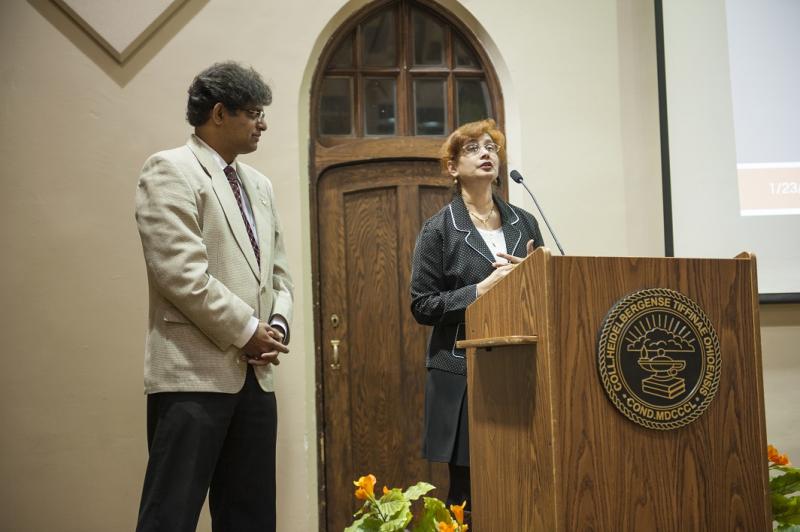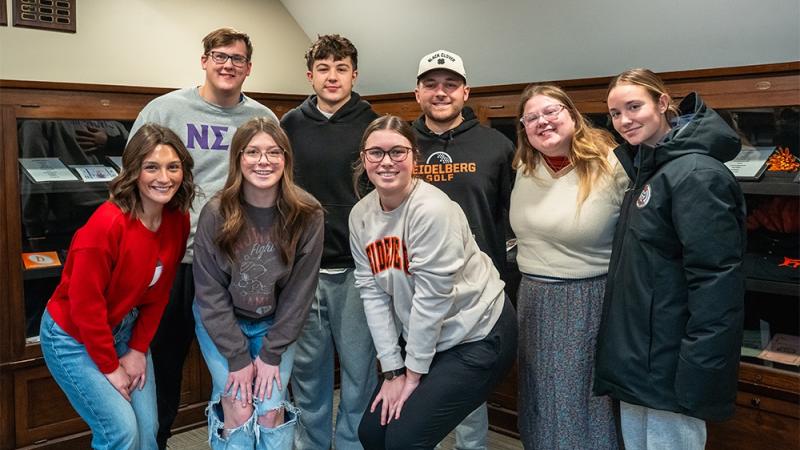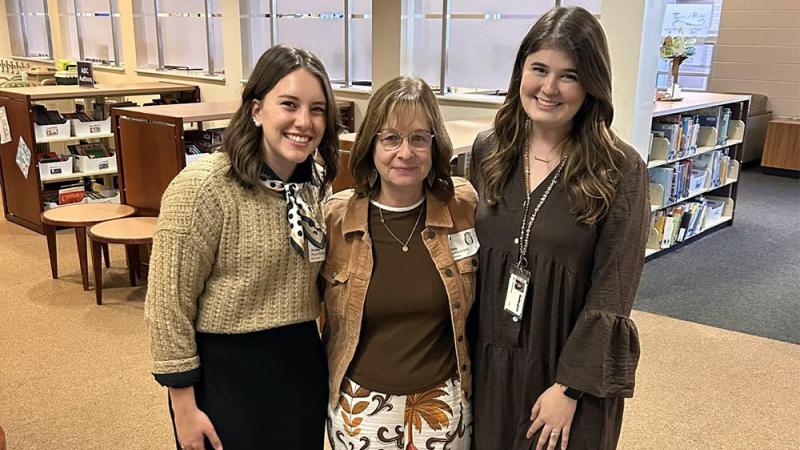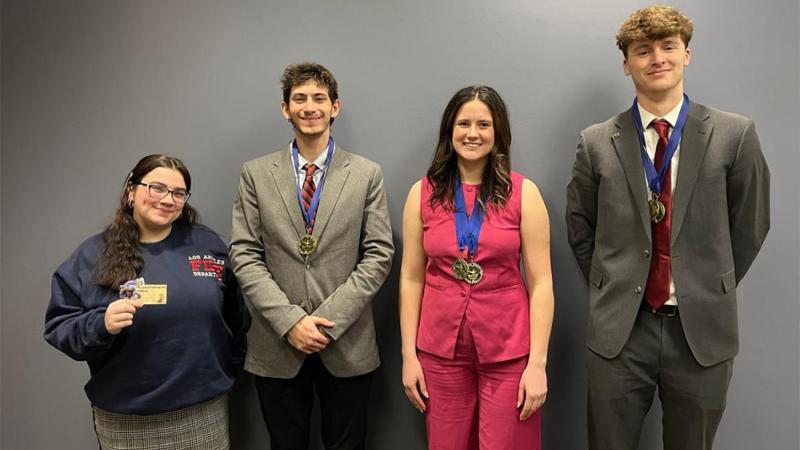With freedom, labor trafficking victims find their voice

Harold and Dancy D’Souza and their two young sons left India in 2003 in pursuit of the American dream. With $1,000 and the promise of a $75,000 job in manufacturing, they arrived in Cincinnati to a nightmare.
The D’Souzas were victims of labor trafficking. On Monday night, they shared their story of captivity and eventual triumph as part of Heidelberg’s third annual Human Trafficking Awareness Week.
“We were brought here under false circumstances. When we got here, we discovered we were trapped,” said Harold. “We came on trust, faith and a promise of a good job, good opportunities for our children and living the American dream,” Dancy added.
Their first 19 months in the U.S. were anything but.
The day they arrived, they were forced to start working in a restaurant under the control of their perpetrator, who manipulated and trapped them into handing over their money and documents under the pretense of keeping them safe. They were in a new culture and environment and knew no one.
“Little did we know our trust would be transformed into trauma, our faith into fear, promise into slavery and our American dream into hell,” he said.
The D’Souzas were forced to work 14- to 16-hour days, seven days a week for no salary. Their living conditions were harsh: no furniture, very little food
Perpetrators are always aware of the human psychology of victims,” Harold said. “He slowly, steadily breaks you down and tries to control you. As a victim, you think you cannot run or escape.”
The family’s situation is an example of modern day slavery – although they refused to believe it was their fate. They endured threats of arrest, jail and deportation, along with abuse, starvation and coercion. Harold was convinced that he had failed as a parent, provider and protector.
“It took a long time to get out of that, but faith is the thing that saved us. … Our church community encouraged and supported us. They helped transform our lives.”
Faith and a confrontation Dancy had with the perpetrator at the restaurant one day to ask for their back wages – a conversation overheard by a chef who shared how he had escaped a similar labor trafficking situation. That conversation gave them hope. They mustered the courage to go to the police, and their case eventually landed with the FBI.
With the help of law enforcement, their church and local organizations, the D’Souzas were eventually able to escape their trafficking situation. Harold landed a good job at Cincinnati Children’s Hospital and the family bought their first house several years ago. To this day, the perpetrator has not been arrested or charged.
Today, the family counts their blessings every day. Their sons are very successful in school and community service. “Every second, I’m thankful to God. I am blessed to be alive,” Harold said. As survivors, he and Dancy feel an obligation to be spokespersons and advocates. Harold was appointed by then-President Obama to the U.S. Advisory Council on Human Trafficking.
Reluctant to share their story for many years, he came to the realization that he could help other people by speaking. “It’s not about me, us, my family. It’s about all the victims … all around the world,” he said. “My eyes were opened to a better life. It’s not about money, wealth or glory, but about helping human beings to live a life of love, peace, happiness and freedom.”
Human Trafficking Awareness Week, coordinated by Berg STOP and advisors Dr. Kristen Williams and Pat McLeod, also offered presentations on staying safe while traveling internationally and on recognizing the signs of human trafficking. The week concluded with a film screening of “What Happened to the Girl Next Door” and a panel discussion, led by Berg STOP President Emma Penrose and Kristen.




